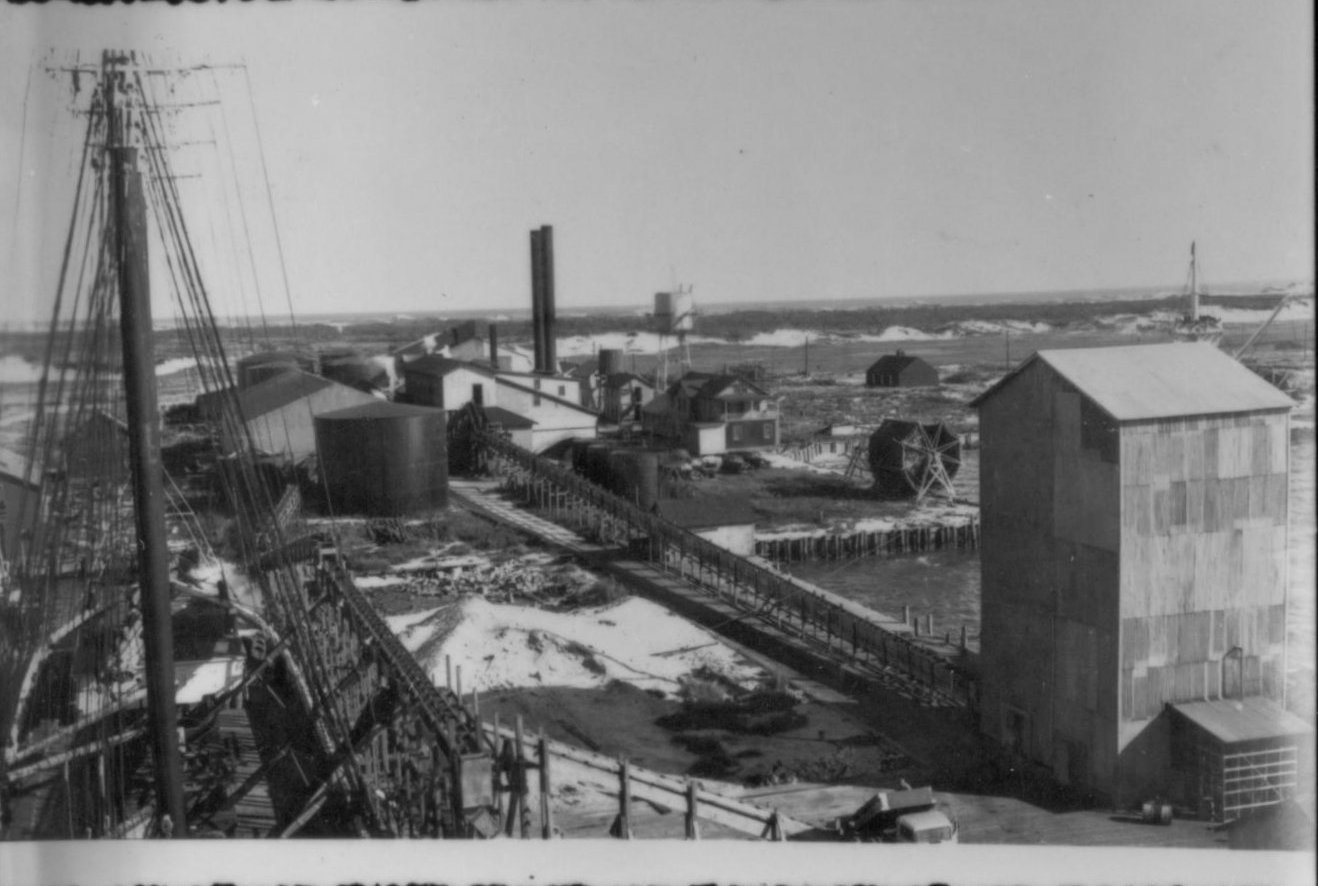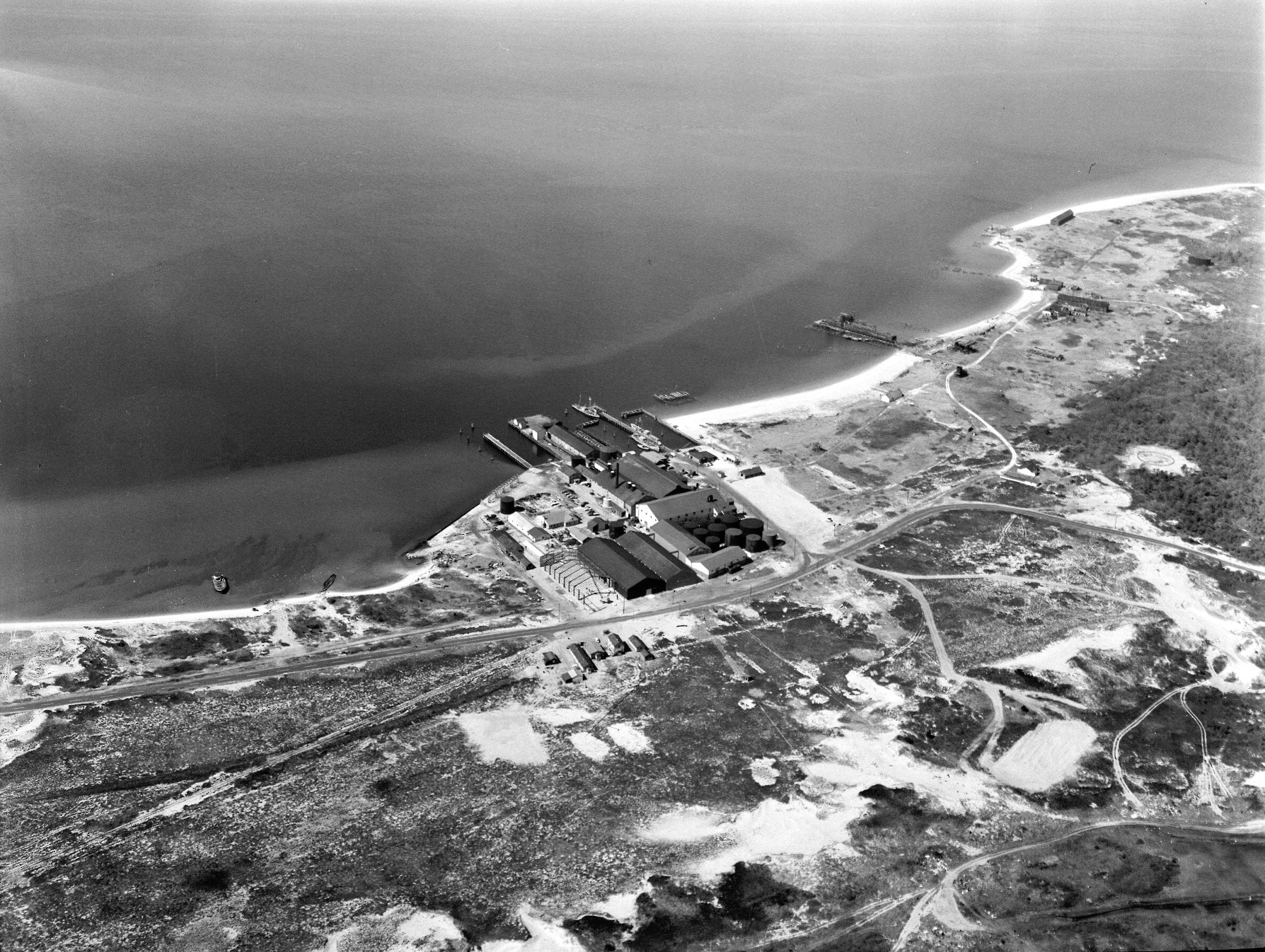

The Depression was in full swing and one in four workers was unemployed when, on December 2, 1932, the East Hampton Star reported that commercial fishing on eastern Long Island was “almost at a standstill.”
For decades fishermen had taken advantage of an abundance of menhaden, or bunker, along the coast. Factories, or “pot-works,” on Napeague Harbor converted the oily fish into fertilizer, fish meal to be used for animal feed, or oil to be added to paints and other products. The fish factories produced a smell that could be discerned for miles, but they were an important engine of the local economy, including for many Montaukers.
“W. R. Morse of the Triton Oil and Fertilizer Company, and John Hayes of the Fisheries Products Company, employ in good times about 900 men,” said the Star, noting that the factory owners also were “large taxpayers here.”
“Their Fisheries Products Company operated 20 boats, when active, averaging 30 men in crew, each; and 100 men ashore. The Triton Company operated 5 boats, representing about 150 men in all. Also at Promised Land is the Edwards Brothers and Company fishing organization, which employed about 50 men on its boats and 10 ashore.”
“Altogether, Promised Land, if active, would employ about 1,000 men.”
The fact that it was not active was blamed on unfair competition from Japan, which the article accused of dumping not only cheap manufactured goods but also oils and fish “at prices which cannot possibly be met by Americans.” Even in Montauk, fishermen, especially those targeting swordfish, said the Japanese were undercutting their business.
“At Montauk about 40 boats go fishing, averaging two or three men each; making about 100 men afloat there; their supplies of ice, groceries, fuel and lubricating oil and gasoline make quite an item in the prosperity of this locality,” the article continued.
Urging readers to “buy American,” it included a letter from the president of the American Fish Oils Association, W.R. Morse of Promised Land and New York. Mr. Morse implored readers to demand relief at the national level in the manner of farming representatives who’d recently visited President-elect Franklin D. Roosevelt.
It’s not immediately clear what the incoming president’s response was, or if he was even approached by representatives of the fishermen, but we do know that the following year, when he was president, he fished off Montauk Point for enjoyment, dropping anchor for a few days in Fort Pond Bay. The president returned for another expedition in 1937.
#Montaukhistory #Montauklibrary #Menhaden #Commercialfishing #Fishing #TBT #Throwbackthursday

Reply or Comment